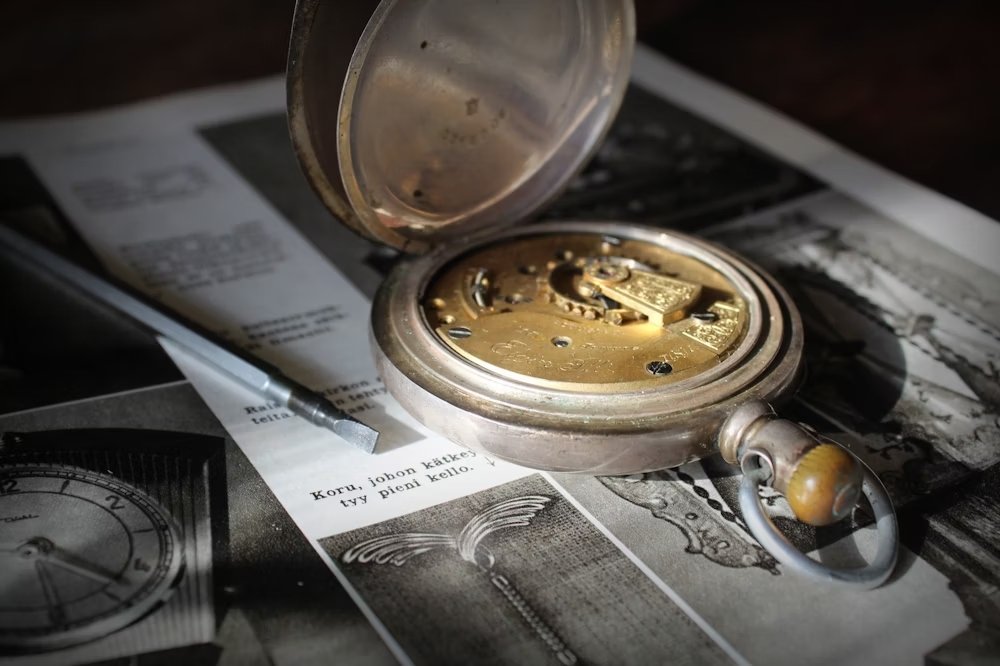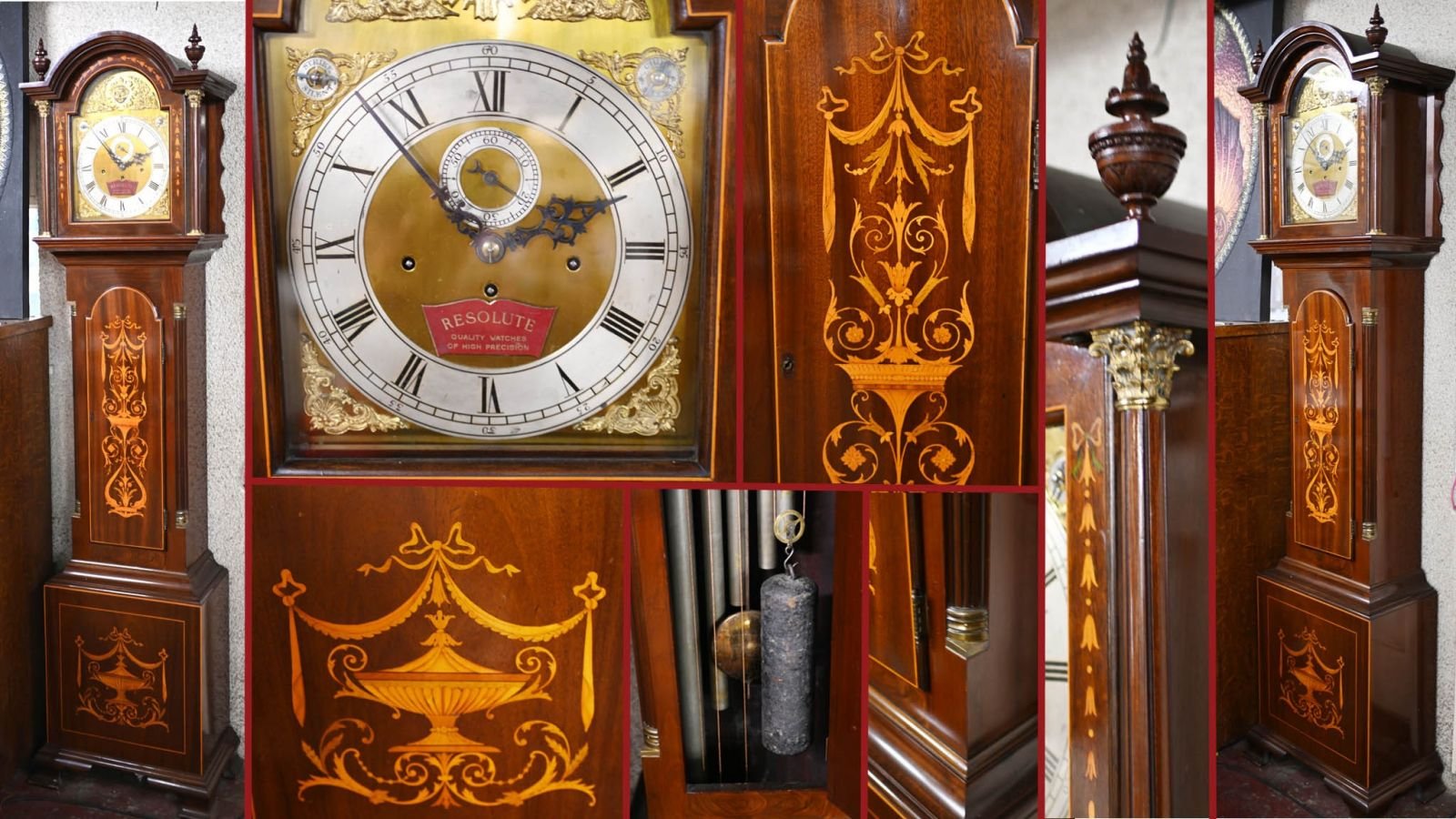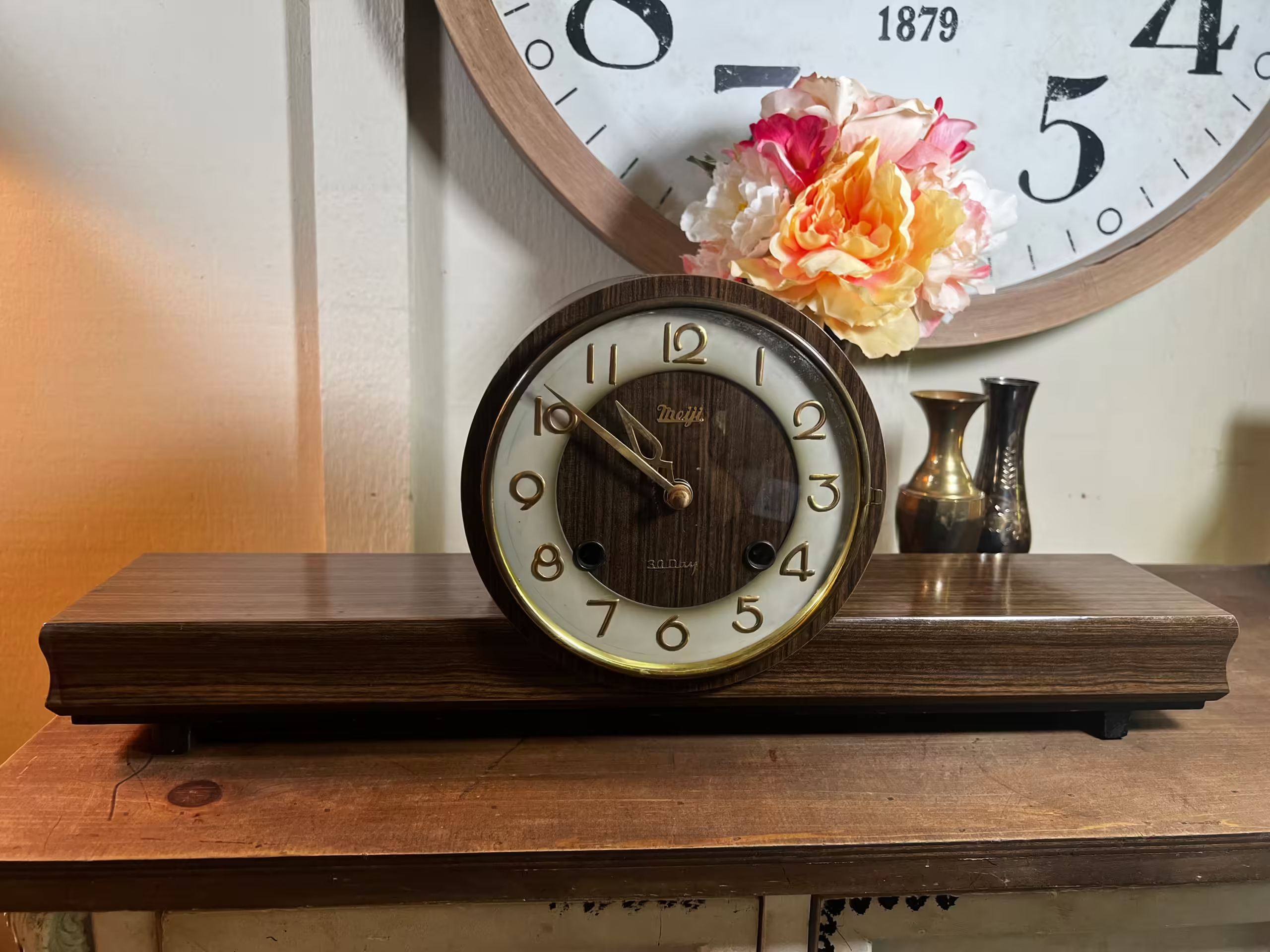Japanese clocks are admired for their elegance and precision. Proper care is crucial to ensure they remain in excellent condition and continue to function accurately. This guide provides essential care tips for maintaining Japanese clocks, whether they are traditional mechanical timepieces or modern quartz models.
Regular Cleaning
Dust and Dirt: Regularly dust the clock to prevent the accumulation of dirt and debris. Use a soft, dry cloth to gently wipe the surface. Avoid abrasive materials that could scratch the finish.
Cleaning the Glass: If your clock has a glass cover, clean it with a glass cleaner and a soft cloth. This helps maintain clarity and ensures that the clock’s face is easy to read.
Avoiding Moisture: Keep the clock away from damp or humid environments. Moisture can damage both the clock’s exterior and internal mechanisms. If the clock is exposed to moisture, dry it immediately with a soft cloth.
Mechanical Maintenance
Winding: For traditional mechanical clocks, winding is essential. Follow the manufacturer’s instructions on how often to wind the clock. Over-winding can damage the mechanism, so ensure you do not exceed the recommended number of turns.
Lubrication: Mechanical clocks require periodic lubrication to ensure smooth operation. Use clock oil specifically designed for this purpose. Apply a small amount to the moving parts and avoid over-lubricating, as this can attract dust and cause damage.
Inspection: Regularly inspect the clock for any signs of wear or damage. Look for issues such as irregular ticking, unusual noises, or stopped hands. Addressing these problems early can prevent further damage.
Quartz Clock Care
Battery Replacement: Quartz clocks rely on batteries to function. Replace the battery as needed to ensure accurate timekeeping. Use high-quality batteries and follow the manufacturer’s instructions for replacement.
Battery Leaks: Check the battery compartment regularly for any signs of leaks. If you notice corrosion or leakage, clean the compartment with a dry cloth and replace the battery immediately.
Electrical Components: Keep the clock’s electrical components free from dust and moisture. If the clock is not functioning properly, consult a professional for repairs rather than attempting to fix it yourself.

Professional Servicing
Regular Servicing: Have your Japanese clock professionally serviced every few years. Professional servicing involves thorough cleaning, inspection, and adjustment of the clock’s internal mechanisms. This helps maintain its accuracy and longevity.
Repairs: If your clock requires repairs, seek assistance from a qualified clockmaker or repair technician. Attempting to repair the clock yourself can cause further damage, especially if you are unfamiliar with clock mechanics.
Storage and Display
Proper Placement: Place the clock in a stable location where it will not be exposed to direct sunlight, extreme temperatures, or vibrations. These factors can affect the clock’s accuracy and overall condition.
Protective Cover: Use a protective cover or case for valuable or antique clocks. This helps shield the clock from dust, moisture, and accidental damage. Ensure the cover is made of materials that do not trap moisture or cause heat buildup.
Handling with Care
Gentle Handling: When moving or cleaning the clock, handle it with care. Avoid shaking or dropping the clock, as this can damage the internal components.
Secure Mounting: If your clock is wall-mounted or placed on a shelf, ensure it is securely mounted. Use appropriate brackets or supports to prevent the clock from falling or shifting.
Conclusion
In conclusion, Japanese clocks, whether traditional or modern, require proper care to maintain their beauty and functionality. By following these essential tips, you can ensure that your Japanese clock remains a cherished timepiece for years to come.





I’m not sure exactly why but this blog is loading extremely slow for me. Is anyone else having this issue or is it a problem on my end? I’ll check back later on and see if the problem still exists.
Meistens besteht er aus einem Match-Bonus auf die
erste Einzahlung und oft auch zusätzlichen Freispielen. Nun, definitiv denjenigen unter euch, die Wert
auf eine große Spielauswahl legen und gerne mobil spielen. Die Bewertung besteht aus Aussagen,
die Sie bewerten und auf einer Skala von 1-10 angeben sollen, wie sehr sie auf Sie zutreffen.
Weitere Optionen für den Selbstausschluss finden Sie
auf der Seite der Kahnawáke Gaming Commission Nachfolgend finden Sie einige Hinweise, wie Sie sicherstellen können, dass sich Ihr Glücksspiel in einem kontrollierbaren Rahmen bewegt, und an welche Stellen Sie sich
wenden können, wenn Sie Hilfe benötigen. Unser Ziel ist es,
Sie zu unterhalten, aber wir kennen auch die
potenziellen Risiken von problematischem Glücksspiel.
Spielern aus Österreich erhalten bei Wunderwins einen Willkommensbonus.
Dieser kleine Makel soll jedoch das Gesamtangebot des Wunderwins Casinos an animierten Tischspielen keineswegs schmälern. Das bedeutet, dass die
Webseite von den Spielern mit einer Browserapp geöffnet werden muss, um mit einem Mobilgerät spielen zu können. Die Einzahlungsboni werden dem
Spielerkonto sofort gutgeschrieben, sobald eine
qualifizierte Einzahlung getätigt wurde.
References:
https://online-spielhallen.de/netbet-casino-promo-code-ihr-schlussel-zu-exklusiven-vorteilen/
Attractively situated in Las Vegas, The Venetian Resort Las Vegas By Suiteness
features air-conditioned rooms, a garden, free WiFi and a restaurant.
This resort on the Las Vegas Strip features a Caribbean-style “GO Pool” with 21+ entertainment.
Located in the center of the Las Vegas Strip, this modern resort offers a casino
and multiple on-site dining options.
Dogs left unattended in a room or suite must be
placed in a carrier or kennel. Like in most Las Vegas hotels, having a dog in certain public areas
is not allowed, except in the event of passing from one area to the next.
Up to two dogs are allowed in one hotel room, which must
be a combined maximum weight of 100 pounds. You will love spa amenities
like infused water and a personal Cypress host.
Renowned for its spectacular Fountains of Bellagio and the breathtaking Conservatory & Botanical Gardens, this iconic resort stands
as a beacon of sophistication and style in the
heart of the Strip. Bellagio, a landmark of luxury in Las Vegas, reflects a
timeless elegance through its stunning architecture and exquisite artistry.
On an early morning in March 2017, men wearing animal-themed masks broke
into a jewelry store at the resort, prompting a police lockdown of the casino and parking garage.
Bellagio was the only hotel in the U.S. to have two Five Diamond restaurants.
The resort’s Picasso restaurant has also been critically acclaimed,
receiving the AAA Five Diamond and Mobil Five-Star awards by the end of 2001.
References:
https://blackcoin.co/malina-casino-australia-your-ultimate-gaming-destination/
“Though the film’s final break-the-bank action sequence in Venice is worth waiting for, Casino Royale’s 2-hour, 24-minute running time is long enough to exhaust all but the series’ biggest fans…” The final hand of the game is down to four players, including Bond and Le Chiffre, who all
go “all in”, betting their remaining money, driving the “pot” amount to well over $120 million. The next day, during the continuing poker game, Bond loses all his money to
Le Chiffre after misreading a bluff and admits to
Vesper that he made a mistake. Casino Royale is
a 2006 spy thriller film based on the Ian Fleming novel of the same
name, and the Twenty first in EON Productions’ James Bond film series.
The film delves into Bond’s psyche, examining his vulnerabilities and the emotional toll of his profession. Mikkelsen’s ability to convey vulnerability beneath a
cold exterior adds layers to the character, making Le
Chiffre one of the most nuanced villains in the
series. At the Casino Royale, Bond engages in a tense and strategic poker game with Le Chiffre, showcasing his skill and determination. Bond’s mission is not only to win the game but also to capture Le Chiffre and dismantle his network.
MI6 discovers that Le Chiffre plans to recover his clients’ money
by winning a high-stakes poker game at the Casino Royale in Montenegro.
The film opens with a black-and-white prologue in which James Bond earns his 00-status by completing two assassinations.
References:
https://blackcoin.co/dunder-bonus-best-offer-for-2025/
online casinos mit paypal
References:
https://lovelocals.us/
online slot machines paypal
References:
https://divyangrojgar.com/
I love your writing style genuinely loving this web site.